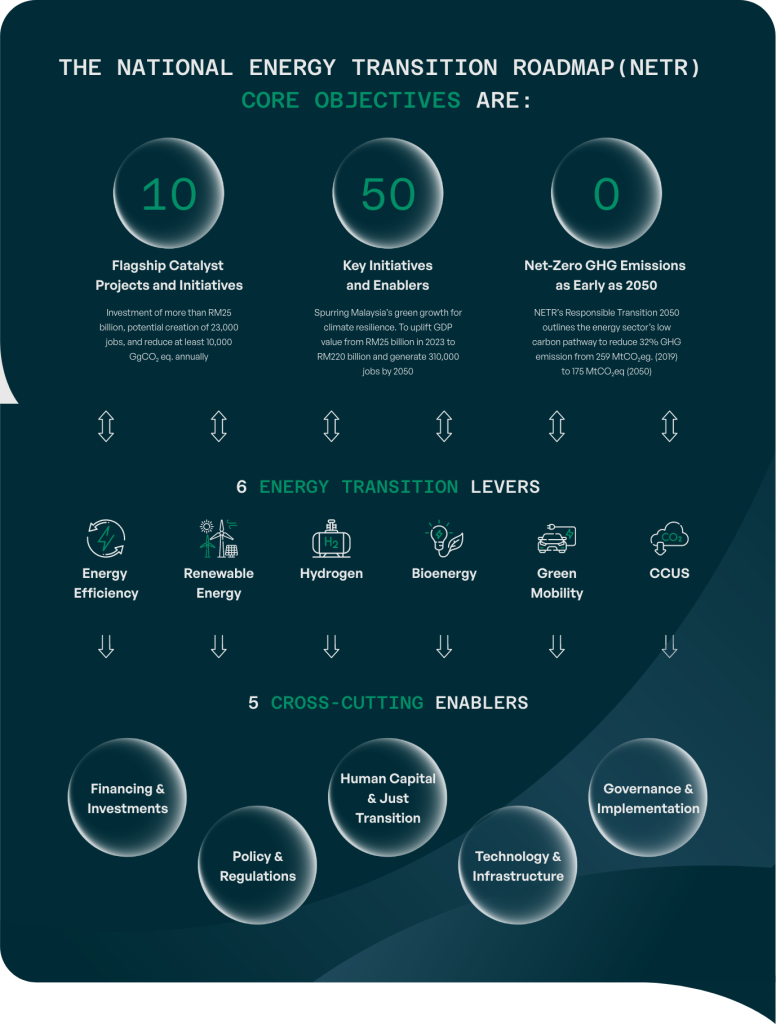The Twelfth Malaysia Plan, spanning 2021-2025 (Twelfth Plan), articulates our commitment to achieve net-zero GHG emissions by 2050. Concurrently, the National Energy Policy 2022-2040 (DTN) lays the foundation for an equitable energy transition that is fair and inclusive for everyone.
Globally, the energy sector faces a rapid transformation while balancing the energy trilemma of security, affordability, and sustainability. Energy transition is also gaining momentum both domestically and internationally.
To accelerate our energy transition efforts, we have developed the National Energy Transition Roadmap (NETR). This roadmap is vital for steering Malaysia’s shift from traditional fossil fuelsbased economy to a high-value green economy. The NETR requires a whole-of-nation approach, encompassing federal and state governments, industry, general public, and international community.
Ten flagship catalyst projects of the NETR, which cover six energy transition levers namely, energy efficiency (EE), renewable energy (RE), hydrogen, bioenergy, green mobility, and carbon capture, utilisation and storage (CCUS) was launched on July 27th 2023. These flagship projects are expected to attract investment of more than RM25 billion, create 23,000 job opportunities and reduce GHG emissions by more than 10,000 Gg CO2eq per year.
Additionally, the NETR establishes the pathway for national energy mix, GHG emission reduction and energy transition initiatives. This reinforces Malaysia’s commitment to net-zero emissions as early as 2050 despite contributing only 0.8% to global GHG. By 2050, NETR initiatives are expected to deliver 32% reduction in GHG emissions for the energy sector compared to the 2019 baseline – reaching 4.3 MtCo2eq emission per capita.
The Ministry has undertaken an extensive consultative approach involving policymakers, industry stakeholders, technology experts, and businesses to analyse and appraise best practices, lessons learned, and both existing and proposed initiatives. As we move ahead, the NETR will serve as a guiding beacon, offering clarity and coherence in formulating policies and executing strategies for the energy sector’s transition into a low-carbon future.

